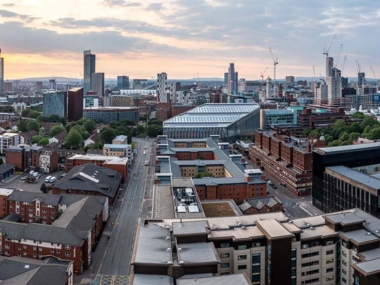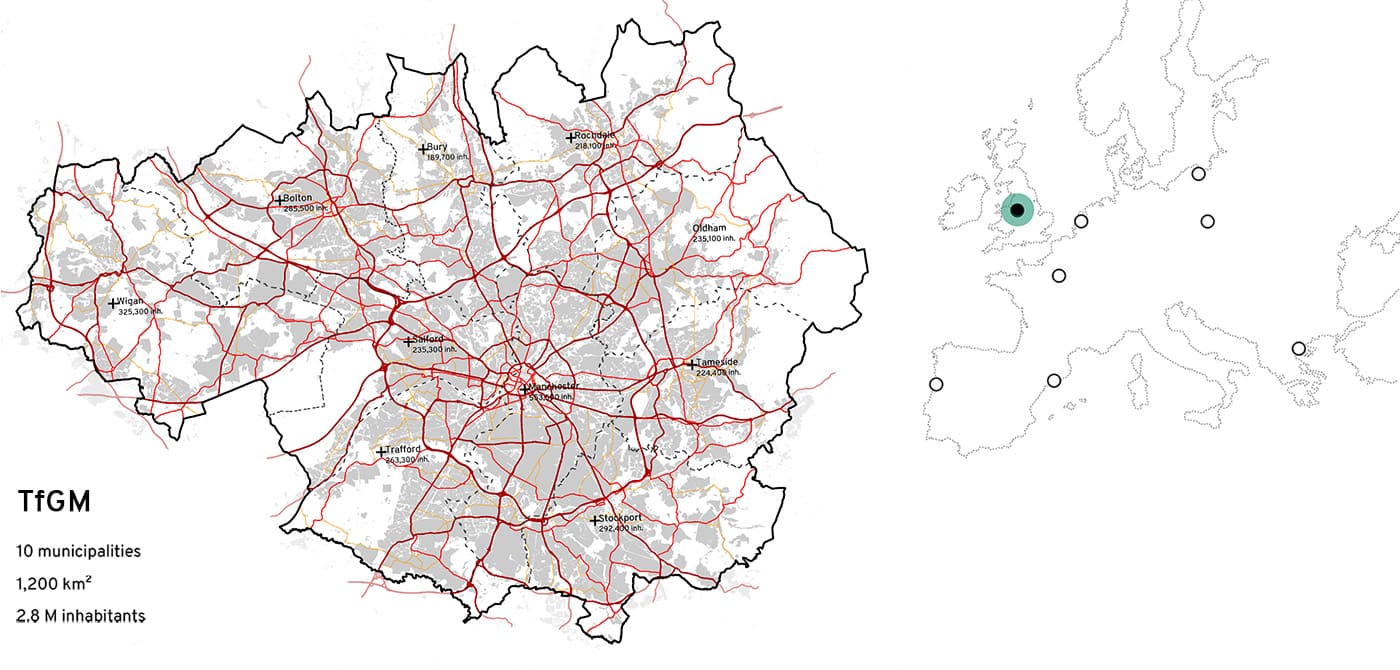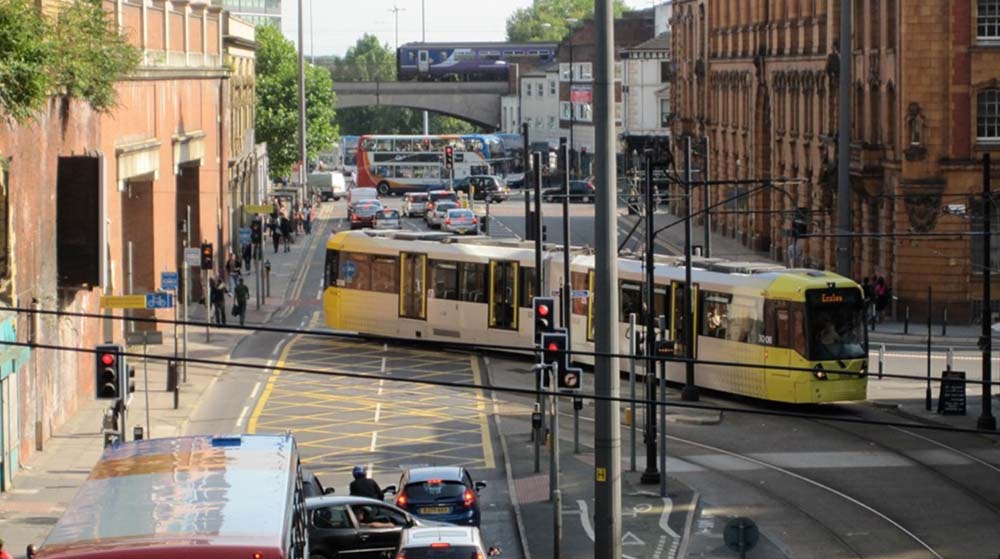Transport for Greater Manchester
Edited on
22 July 2021Our partner Transport for Greater Manchester is preparing a set of specific strategies to rethink mobility and street space, and RiConnect will be a valuable forum to enrich the discussion

Transport for Greater Manchester (TfGM) is the public body responsible for co-ordinating transport services across the metropolitan county of Greater Manchester. It was formed in 1969 and became the Greater Manchester Passenger Transport Executive (GMPTE) in 1974. In 2011, and following a reform of local government which granted more devolved powers, the organisation was re-named Transport for Greater Manchester. In 2014, Greater Manchester was the first city-region in the UK to a significant devolution agreement with the UK’s central Government. The agreement resulted in Greater Manchester gaining additional powers in some areas (including related to transport, planning and infrastructure) and a directly elected Mayor.
Today, TfGM is responsible for delivering the transport policies set by the Mayor, the Greater Manchester Combined Authority (GMCA), the Greater Manchester Transport Committee (GMTC) and the ten councils that make up the city-region: Bolton, Bury, Oldham, Rochdale, Stockport, Tameside, Trafford, Wigan, and the cities of Manchester and Salford. Decisions made by these elected representatives are implemented by TfGM to improve transport services and facilities across Greater Manchester.
 TfGM works closely with bus, train and tram operators, to help improve these services for people who live and work in, and visit, Greater Manchester. It also owns Metrolink - the UK’s largest light rail network - and plans for its future; promotes and invests in walking and cycling and owns Greater Manchester’s bus stops and shelters. TfGM invests in new, modern transport interchanges; develops smarter ways to travel by using data and technology and subsidises fares to help older people, children and disabled people get around. The organisation also plays a leading role in co-ordinating Greater Manchester’s plans to reduce transport related air pollution.
TfGM works closely with bus, train and tram operators, to help improve these services for people who live and work in, and visit, Greater Manchester. It also owns Metrolink - the UK’s largest light rail network - and plans for its future; promotes and invests in walking and cycling and owns Greater Manchester’s bus stops and shelters. TfGM invests in new, modern transport interchanges; develops smarter ways to travel by using data and technology and subsidises fares to help older people, children and disabled people get around. The organisation also plays a leading role in co-ordinating Greater Manchester’s plans to reduce transport related air pollution.
Some of Greater Manchester’s transport governance arrangements are less straightforward. Broadly speaking, heavy rail infrastructure is managed by Network Rail and services are managed by privately-owned Train Operating Companies (TOCs); bus services are managed by privately owned and operated companies; motorways come under the ownership and operation of a national government agency (Highways England) and the remainder of the highway network comes under the control of the ten councils (who have special powers, as Local Highway Authorities), although TfGM does keep traffic flowing on some of Greater Manchester’s busiest roads, including by managing a 580km Key Route Network.

Within TfGM, the Transport Strategy department prepares and oversees the implementation of Greater Manchester’s statutory local transport plans, on behalf of the GMCA. Greater Manchester’s current local transport plan is the Greater Manchester Transport Strategy 2040 which sets out a vision for Greater Manchester to have ‘World class connections that support long-term, sustainable economic growth and access to opportunity for all’ and provides broad, guiding principles to help the city-region to develop and prioritise transport investment.
To deliver our long-term Greater Manchester Transport Strategy 2040, we want 50% of all journeys in Greater Manchester to be made by walking, cycling and public transport by 2040. That’s a million more sustainable journeys every day. The long-term approach to planning our transport network, set out in the Strategy, is underpinned by a series of five-year Delivery Plans. The Delivery Plans set out the practical actions we will to take – over each five-year period – to achieve mayoral ambitions, and to provide a coordinated approach to transport investment. They also contain clear asks, for further devolution of transport funding and powers from central Government, to enable us to deliver a cleaner, more efficient and integrated transport network.
Detailed sub-strategies to the Greater Manchester Transport Strategy 2040 – such as a Streets for All Strategy, a Rapid Transit Strategy and a Local Bus Strategy – are being prepared in collaboration with local councils and other key stakeholders, and these will set out, in more detail, how our mobility infrastructure could be designed to improve things for people travelling in Greater Manchester. We will provide more details about our Streets for All Strategy, and approach, in a future article as that work - to foster a progressive streets agenda – provides much of the rationale for our involvement in the RiConnect project.
 Submitted by Stela Salinas on
Submitted by Stela Salinas on

